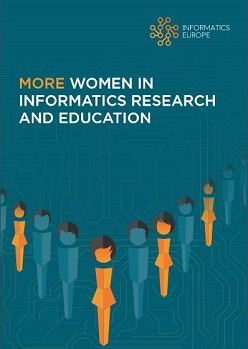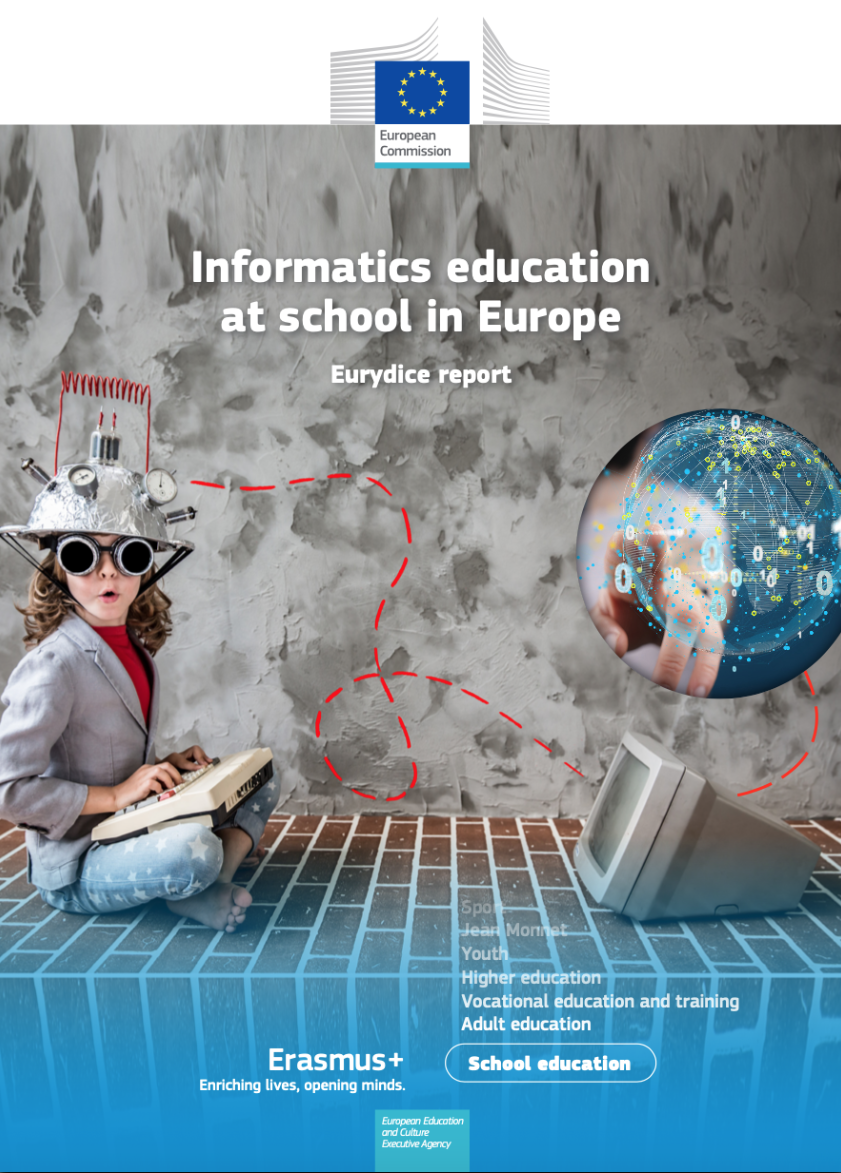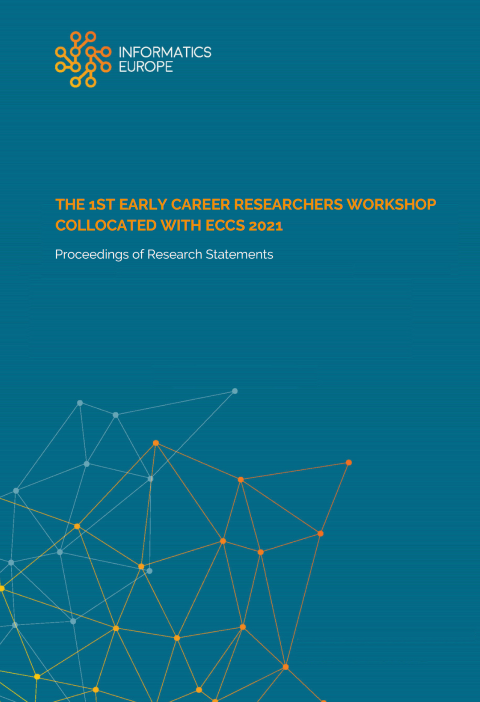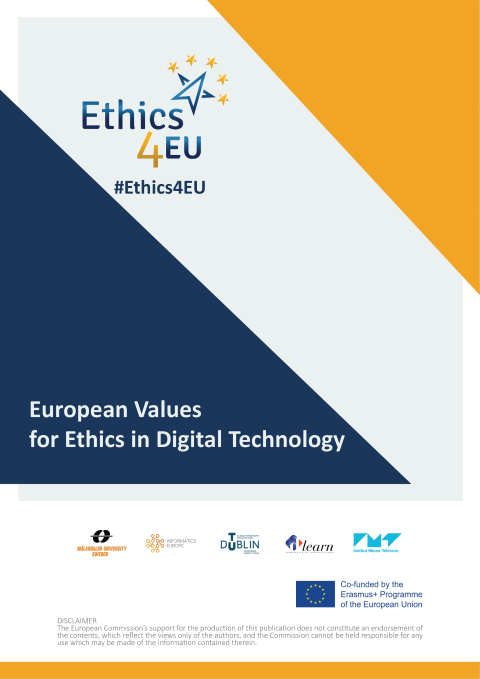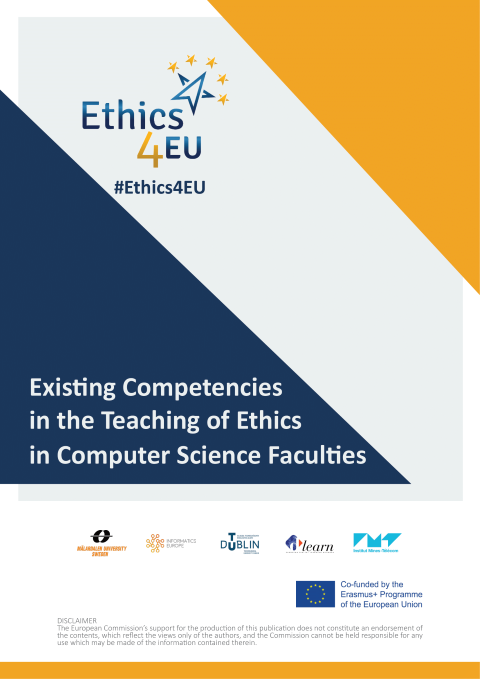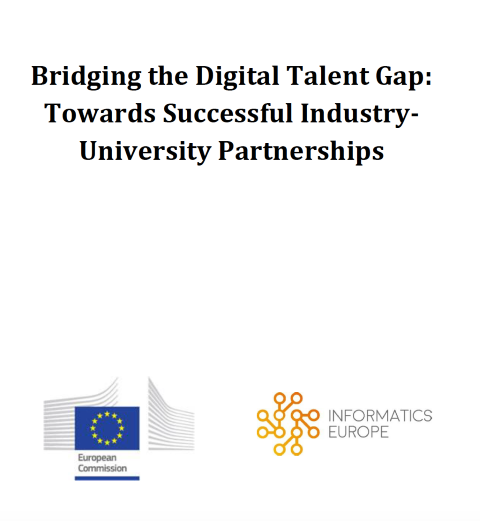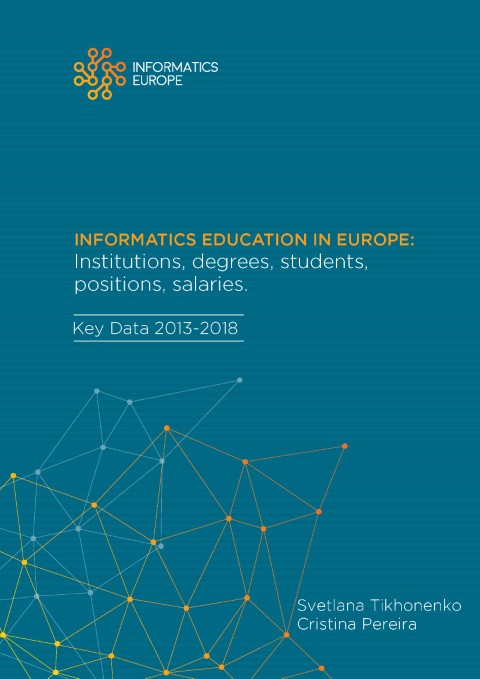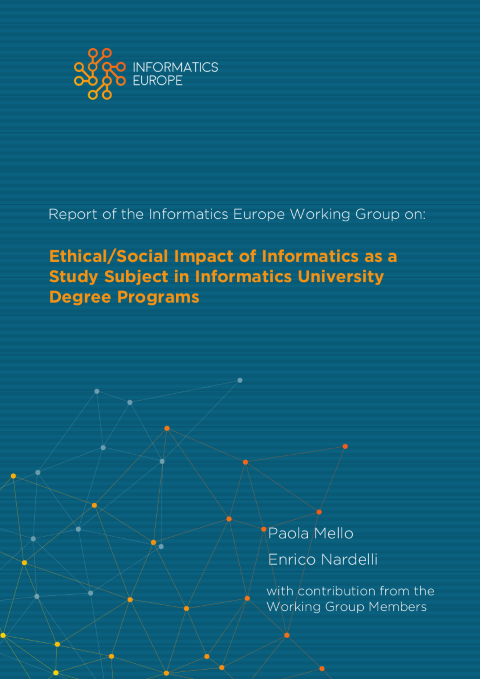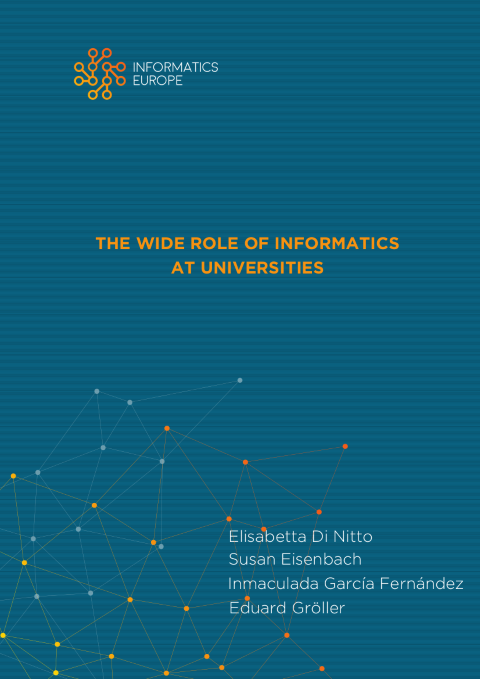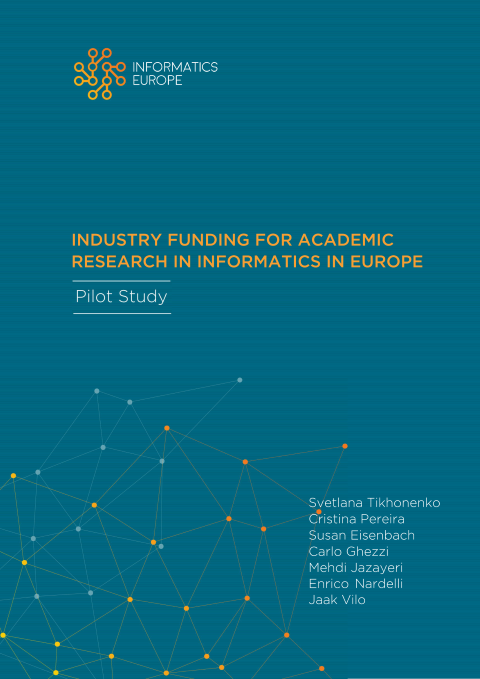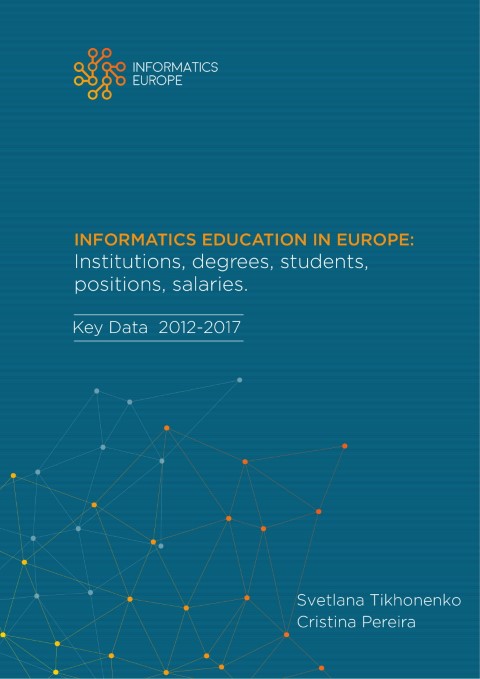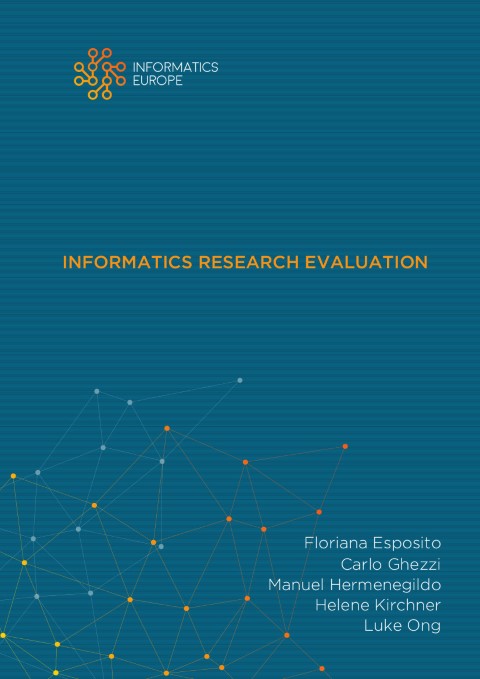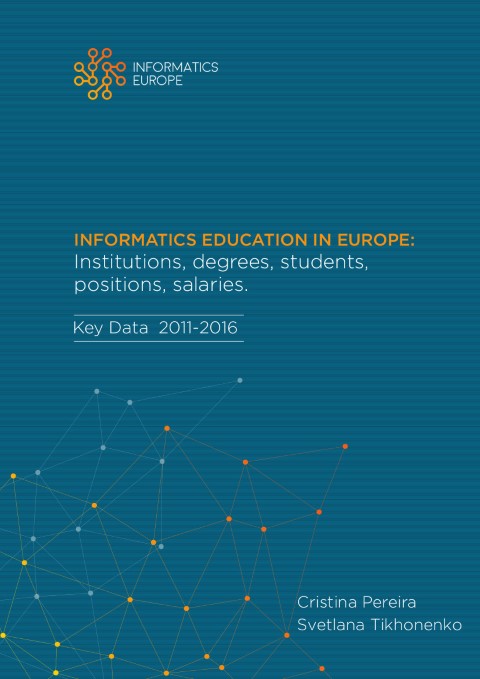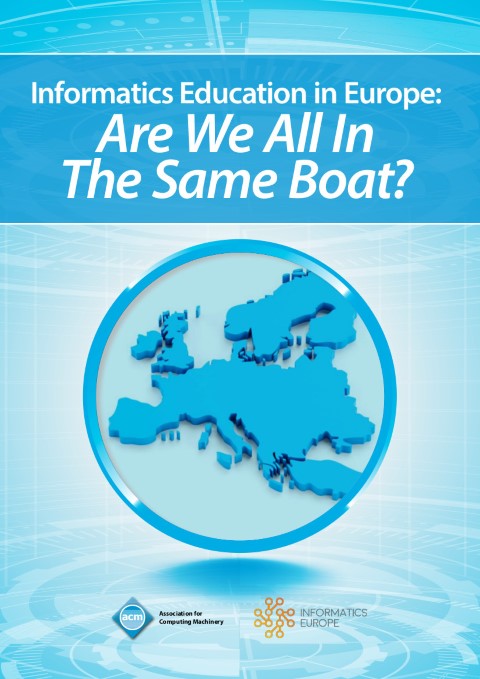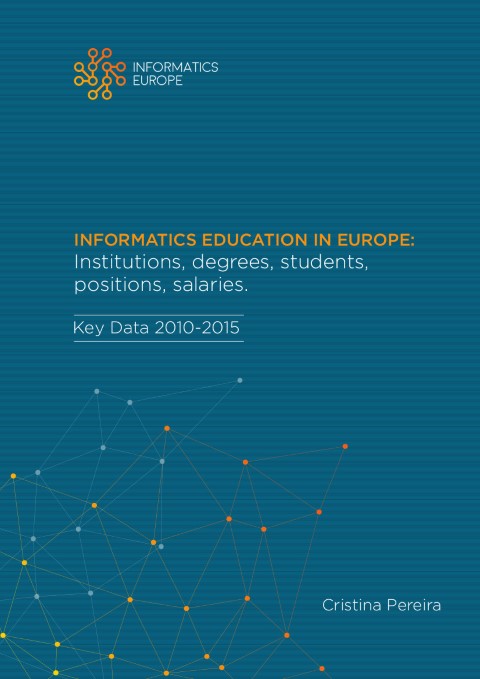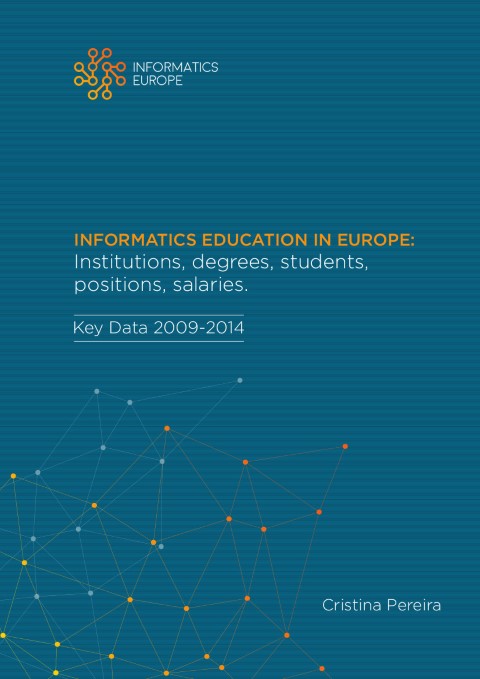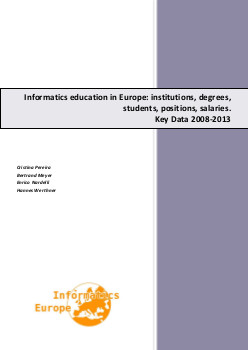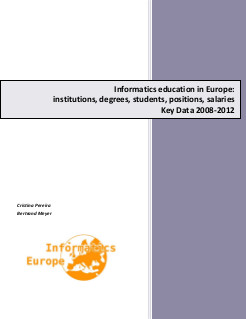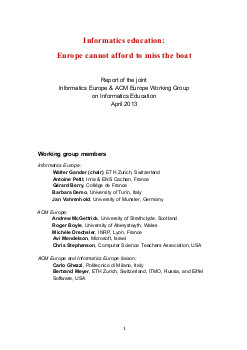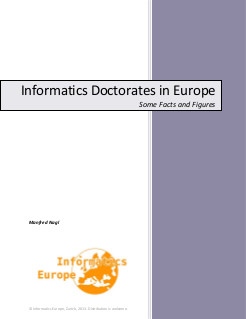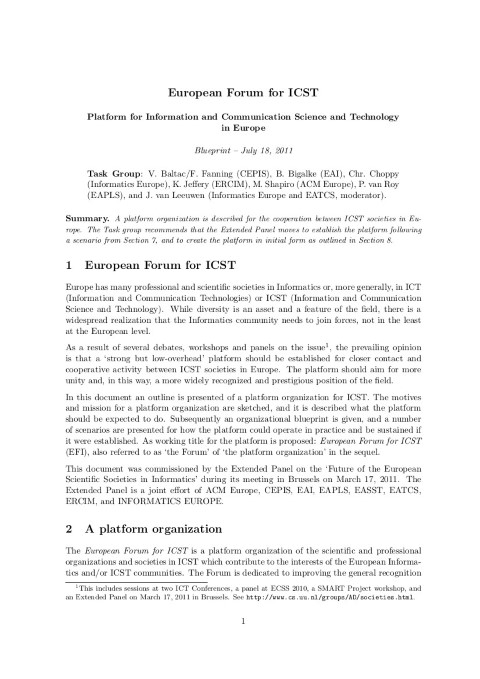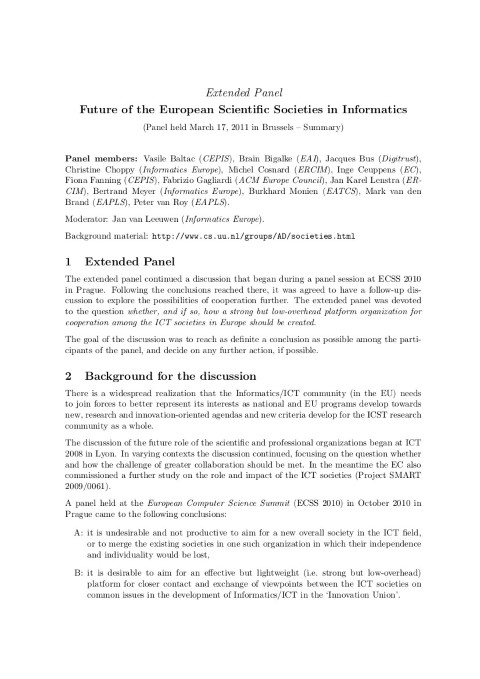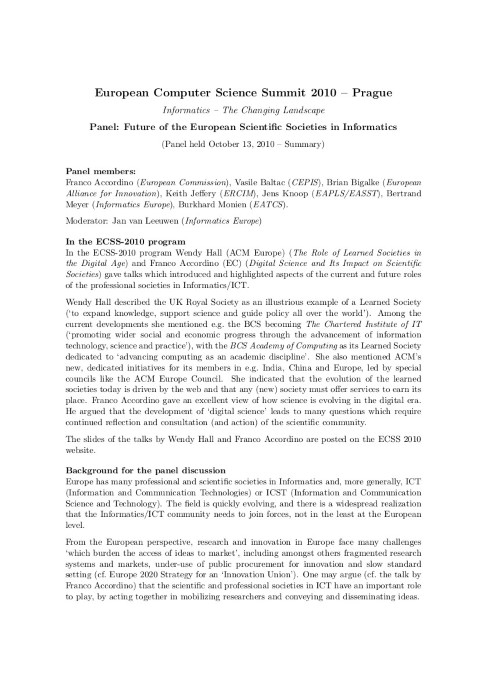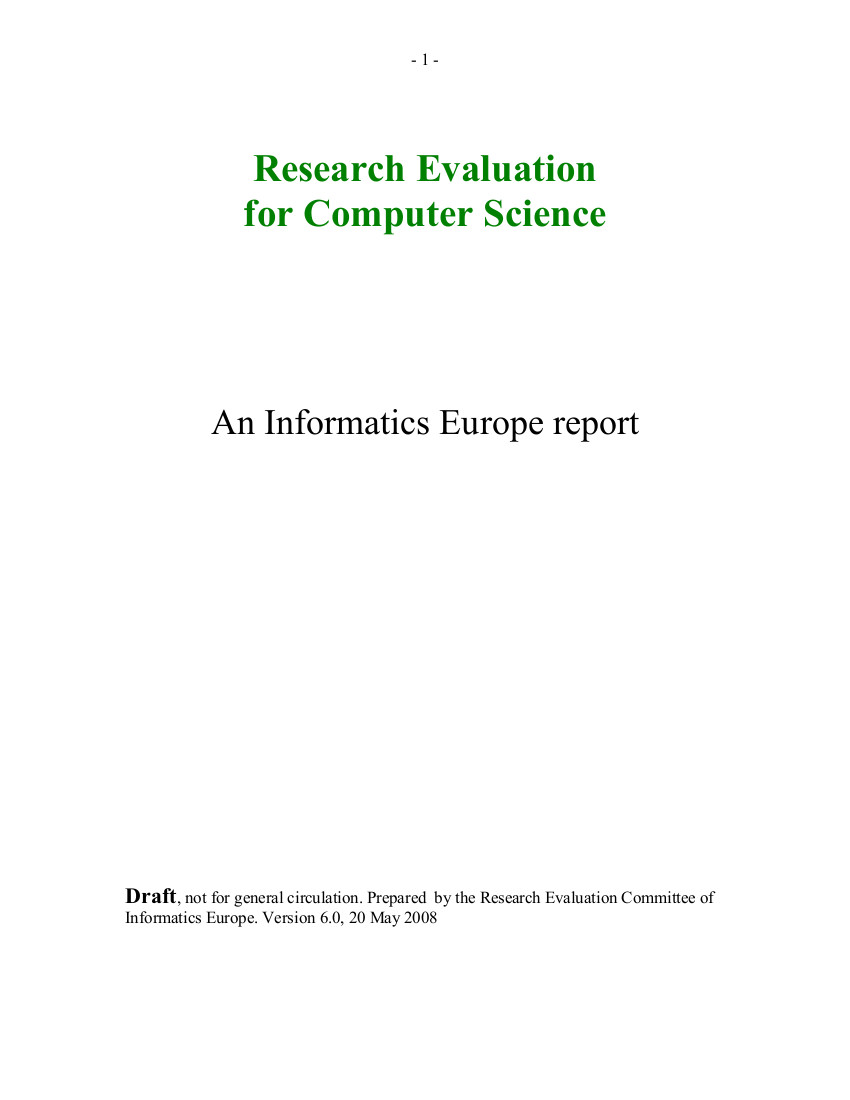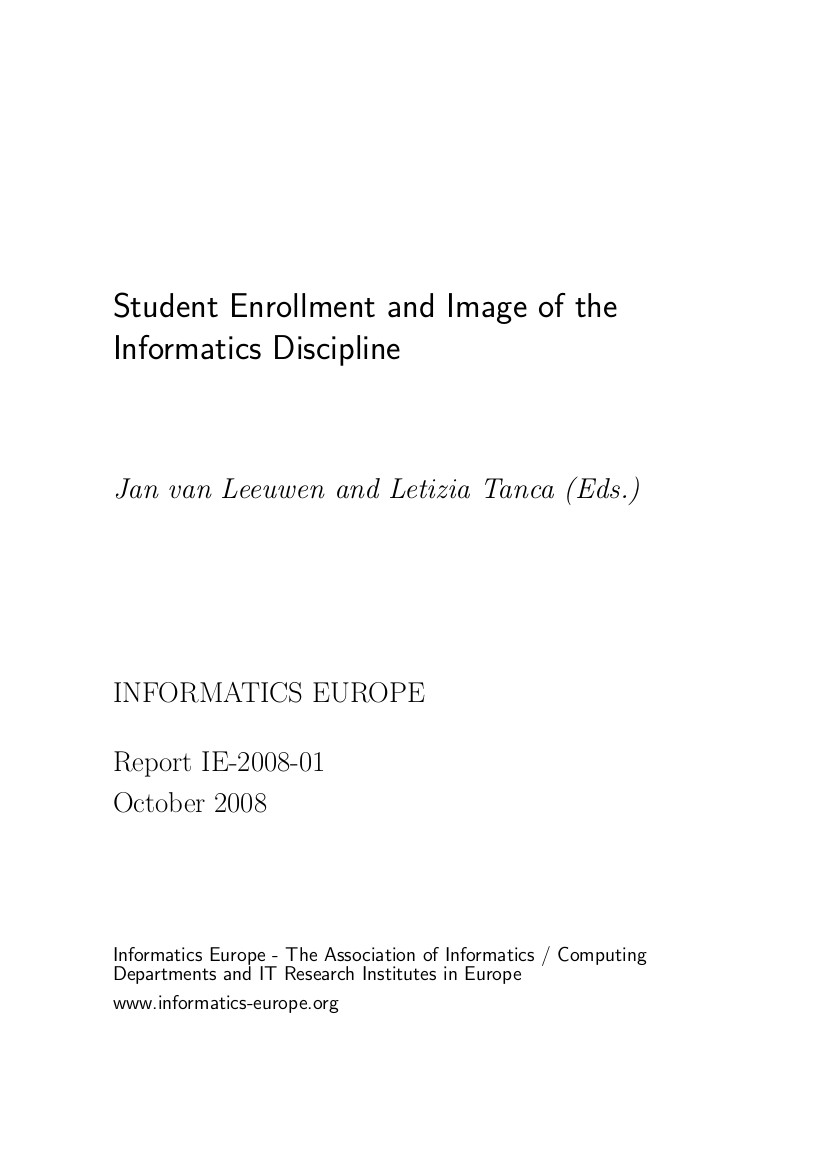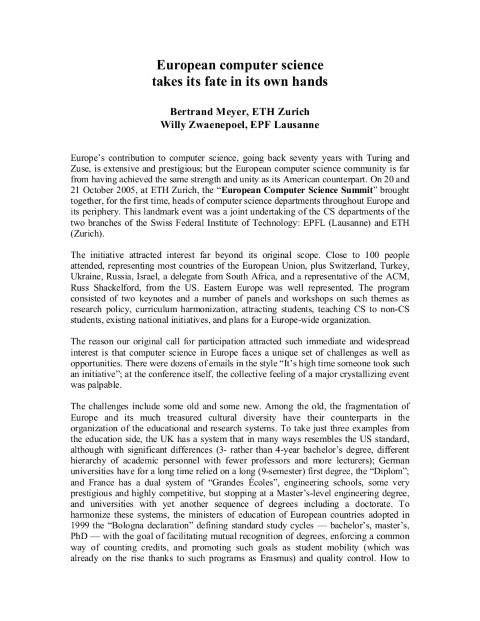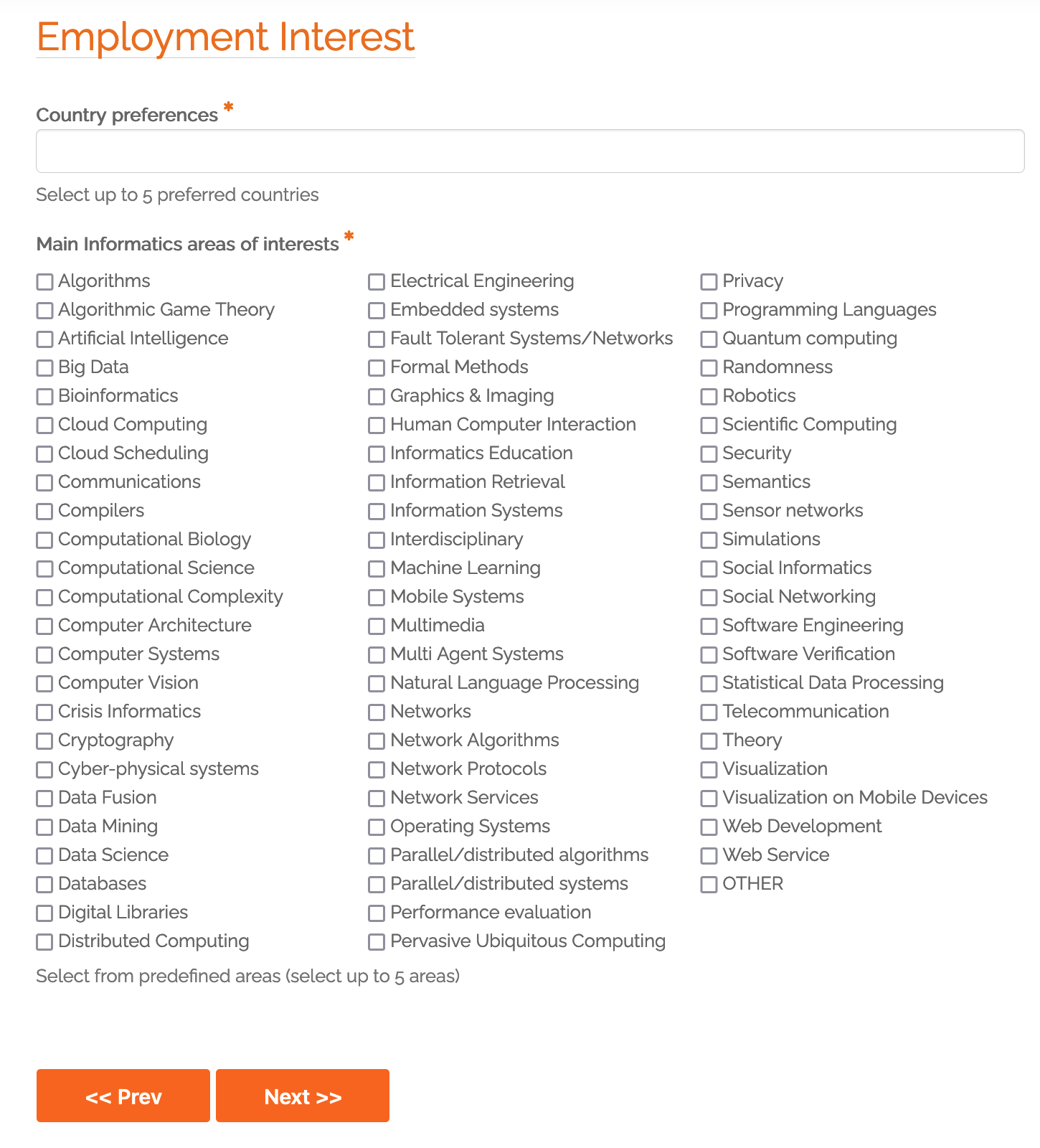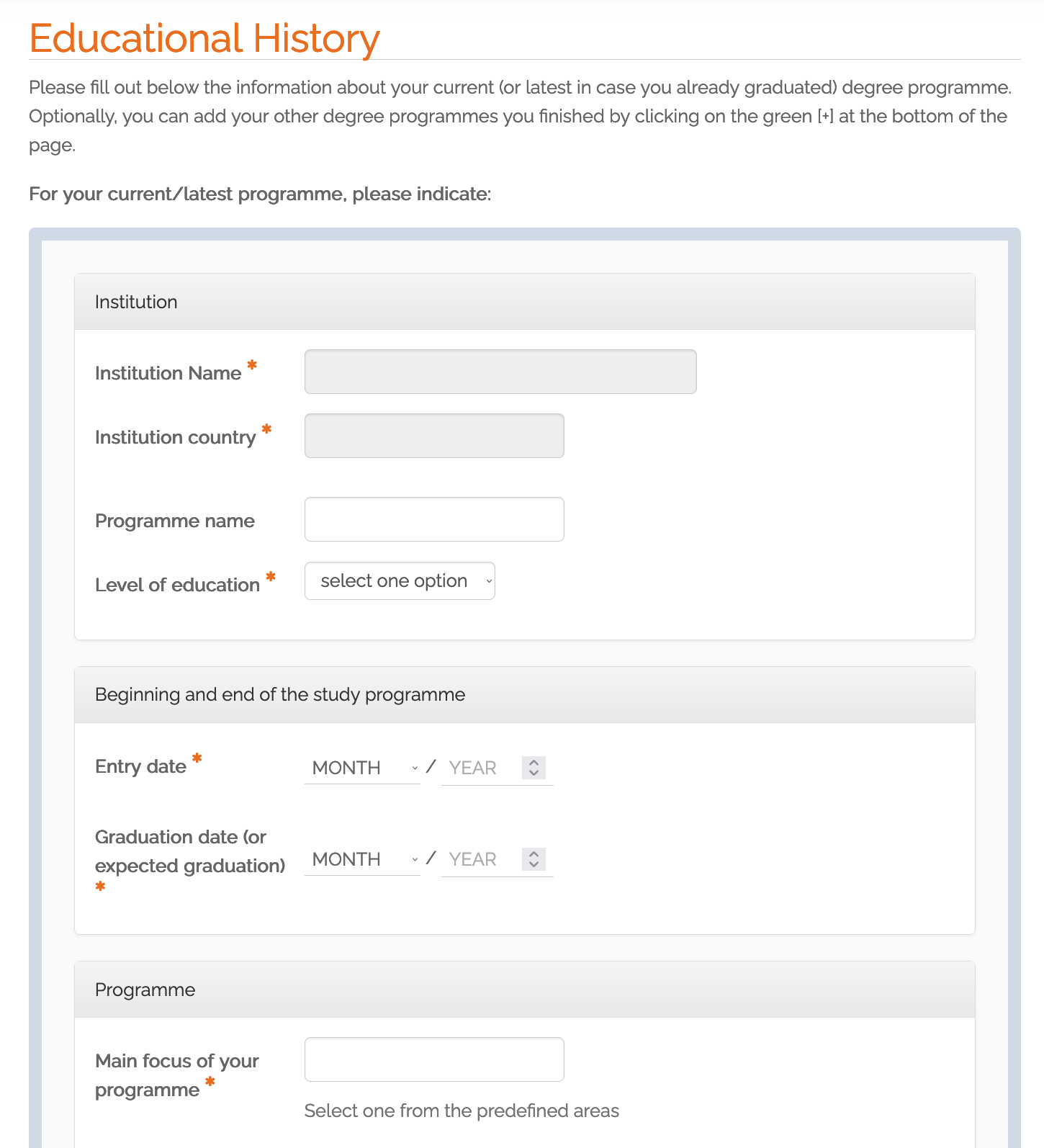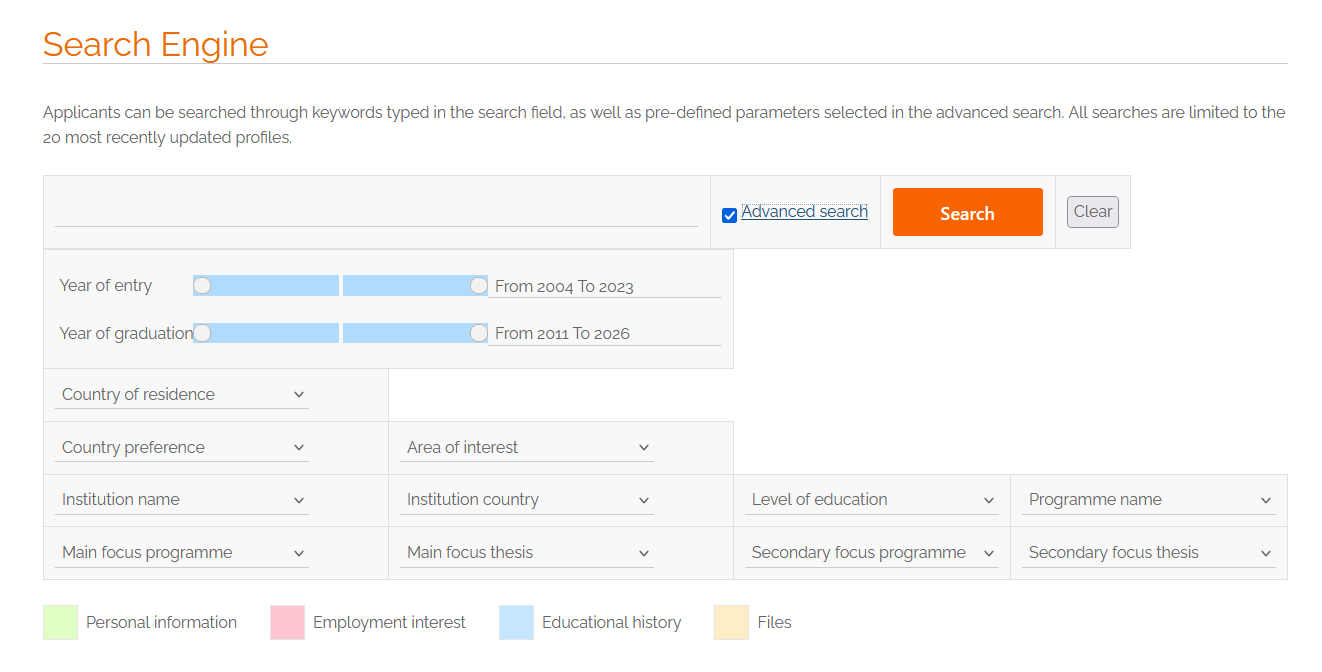CV Repository Privacy Policy
Informatics Europe (“IE”) is a non-profit Association with its registered office in Zurich, 8050, Binzmühlestrasse 14, Switzerland. IE is committed to protecting your privacy as users of the CV Repository (“CV Repository”).
IE is the data controller for the personal data processing activities referred to the CV Repository and for all the related and underlying activities (among others, e.g., creation of the account, uploading of CVs, etc.; hereinafter, the “Service”).
However, IE has no active role, nor is it somehow involved in, should any further direct contact between Applicant and Recruiter occur because the former’s profile is suitable to the latter’s research. On this, Recruiters will autonomously decide if and how to further process personal data of candidates, acting as autonomous data controllers, and Applicants are to rely on their privacy policies concerning the further processing of personal data.
For any questions regarding this Privacy Policy and our processing activities, please contact: This email address is being protected from spambots. You need JavaScript enabled to view it..
The CV Repository is a service offered by IE to connect early career professionals and employers, both in industry and academia, in informatics and related disciplines. In details, this Privacy Policy is intended for both the following categories:
- Bachelor’s students of the last year of study, Master’s, and PhD students of all years of study, as well as recent graduates from IE member institutions, who are willing to submit their job profiles and upload CVs, as Applicants, to our CV Repository, free-of-charge (“Applicants”).
- IE members and sponsors, who are willing to search for desired Applicant profiles and access their CVs. Fees may apply (“Recruiters”).
As such, this Privacy Policy has been written in order to allow you (either as Applicant or Recruiter) to understand IE’s policy regarding your privacy, as well as how your personal information will be handled when registering your account and using the CV Repository. This Privacy Policy will also provide you with information so that you are able to consent to the processing of your personal data in an explicit and informed manner, where appropriate.
Personal Data processed
To gain access to the CV Repository, you have to first register your account and select the Applicant or Recruiter option. Thereafter, you have to sign into your IE account and the CV Repository account will be accessible.
When registering onto and/or accessing the CV Repository, IE will thus collect and process information regarding you (as an individual) which allows you to be identified either by itself, or together with other information which has been collected. This information may be classified as “personal data”.
If you provide data of third parties (e.g., contact details for references), you assume all the obligations and responsibilities prescribed by the law, conferring the widest indemnity with respect to any dispute, claim, request for compensation for damage, etc. that IE may receive from third parties whose personal data were transmitted by you and processed in violation of the applicable data protection laws.
Registration form
In order to access the CV Repository, both Applicants and Recruiters are to preliminary register and create their own account. More precisely, the following personal data will be processed to this end:
- Full name;
- E-mail address;
- Username;
- Password.
Applicants’ profile
Once registered, Applicants can easily create and manage their profiles and/or upload their CVs. Profiles can be modified, disabled, or deleted by Applicants at any time.
Moreover, registered Recruiters can filter through the dataset when looking for potential candidates with a given skill set. For search queries where the number of matching applicants is greater than 20, the system will indicate that only the first 20 appear (based on the chronological order by the date of update in the system, from most recent to oldest) and encourage the Recruiter to refine the search to get further profiles.
Hence, Applicants will periodically receive (once every 12 months of inactivity) notifications from IE prompting them to update their profile, with reminders at a two-monthes distance (“updating communication”). After a fourth unfulfilled reminder (i.e., 18 months after the last update), IE will proceed to delete the Applicant’s profile from the CV Repository, and this deletion will be finalized at the conclusion of the calendar year.
Applicants’ profiles will be filled in with the following further information:
- Personal data (e.g., full name, e-mail address, country of residence);
- Employment Interests (e.g., country preferences, main informatics areas of interests);
- Educational History (e.g., institution name, institution country, level of education, entry date, graduation date, program name, main focus of your program, secondary focus of your program, main focus of your thesis, secondary focus of your thesis, your degree grade, maximum degree grade in your institution);
- CV (e.g., CV, link to webpage, type of webpage, e.g., Personal webpage / LinkedIn Profile / Github portfolio / Google Scholar / ResearchGate / Facebook / Other).
In some cases, your CV may contain special categories of personal data relating to you and/or to third parties (e.g., health-related data, disabilities of you and/or your parents, children or relatives etc.). IE does not intend to use this information that will not be taken into consideration. Hence, IE kindly asks that you do not disclose any such types of personal data, unless you consider this to be strictly necessary.
Browsing data
The CV Repository's operation, as is standard with any websites on the Internet, involves the use of computer systems and software procedures, which collect information about the CV Repository's users as part of their routine operation. This information includes your IP address. While IE does not collect this information in order to link it to specific users, it is still possible to identify those users either directly via that information, or by using other information collected - as such, this information must also be considered personal data.
Purposes of processing, grounds for processing and mandatory / discretionary nature of processing
IE intends to use your Personal Data, collected through the use of Service, for the following purposes:
a) Service provision
To provide Applicants and Recruiters with the Service, as defined above (e.g., using and accessing CV Repository, registering and creating their account, sending updating communications, uploading CVs, allowing research, etc.).
Processing for this purpose is necessary to provide the Service and, therefore, it is necessary for the performance of a contract with you. It is not mandatory for you to give IE your personal data for this purpose; however, if you do not provide all mandatory information requested, IE will not be able to provide the Service to you.
b) Marketing (for Applicants only)
To send announcements and information about IE activities and events, only to those Applicants that have granted their consent.
Processing for this purpose is generally based on Applicants’ consent. It is not mandatory for you to give consent to IE for use of your personal data for this purpose, and you will suffer no consequence if you choose not to (aside from not being able to receive further marketing communications from IE). Any consent given may also be withdrawn at a later stage.
c) Compliance
For compliance with laws which impose upon IE the collection and/or further processing of certain kinds of personal data, as well as, where necessary, for establishment, exercise or defence of legal claims.
Processing for this purpose is necessary for IE to comply with its legal obligations. When you provide any personal data to IE, IE must process it in accordance with the laws applicable to it, which may include retaining and reporting your personal data to official authorities for compliance with tax, customs or other legal obligations. Additionally, IE may process personal data where necessary to establish, exercise or defend any legal claims.
Recipients of Personal Data
Your personal data may be shared with the following list of persons / entities ("Recipients"):
- Entities engaged in order to provide the Service and/or persons authorised to perform technical maintenance (including maintenance of network equipment and electronic communications networks), typically acting as data processor on behalf of IE;
- Persons authorised by IE to process personal data needed to carry out activities strictly related to the provision of the Service, who have undertaken an obligation of confidentiality or are subject to an appropriate legal obligation of confidentiality (e.g., employees of IE);
- Public entities, bodies or authorities to whom your personal data may be disclosed, in accordance with the applicable law or binding orders of those entities, bodies or authorities;
- Recruiters, acting as autonomous data controllers. You can find the updated list of all potential Recruiters here.
Transfer of Personal Data
Due to the nature of the Service provided for, your personal data may be transferred to Recipients located in several different countries. IE implements appropriate safeguards to ensure the lawfulness and security of these personal data transfers, such as by relying on adequacy decisions, standard data protection clauses, or other safeguards or conditions considered adequate to the transfer at hand.
Retention of Personal Data
Personal Data processed for Service Provision will be kept by IE until it is necessary to provide you with Service. IE may continue to store these data for a longer period, as it may be necessary for the establishment, exercise or defence of legal claims, and to protect IE’s interests related to potential liabilities related to the provision of the Service.
Applicants will periodically receive (once every 12 months of inactivity) updating communications from IE prompting them to update their profile, with reminders at a two-monthes distance. After a fourth unfulfilled reminder (i.e., 18 months after the last update), IE will proceed to delete the Applicant’s profile from the CV Repository, and this deletion will be finalized at the conclusion of the calendar year.
Personal data processed for Marketing will be kept by IE from the moment you give consent until you withdraw the consent given. Once consent is withdrawn, personal data will no longer be used for this purpose, although it may still be kept by IE, in particular as may be necessary for the establishment, exercise or defence of legal claims and, to protect IE’s interests related to potential liabilities.
Personal data processed for Compliance will be kept by IE for the period required by the specific legal obligation or by the applicable law, or as long as may be required in order to establish, exercise or defend legal claims.
Data subjects' rights
As a data subject, you are entitled to exercise the following rights before IE, at any time:
- Access your personal data being processed by IE (and/or a copy of that personal data), as well as information on the processing of your personal data;
- Correct or update your personal data processed by IE, where it may be inaccurate or incomplete;
- Request erasure of your personal data being processed by IE, where you feel that the processing is unnecessary or otherwise unlawful;
- Request the restriction of the processing of your personal data, where you feel that the personal data processed is inaccurate, unnecessary or unlawfully processed, or where you have objected to the processing;
- Exercise your right to portability: the right to obtain a copy of your personal data provided to IE, in a structured, commonly used and machine-readable format, as well as the transmission of that personal data to another data controller;
- Object to the processing of your personal data, based on relevant grounds related to your particular situation, which you believe must prevent IE from processing your personal data; or
- Withdraw your consent to processing (for Marketing).
You can withdraw consent, or object to processing for Marketing by selecting the appropriate link included at the bottom of every marketing e-mail message received.
Aside from the above means, you can also exercise your rights described above by sending a written request to IE at the following address: This email address is being protected from spambots. You need JavaScript enabled to view it..
In any case, please note that, as a data subject, you are entitled to file a complaint with the competent supervisory authorities for the protection of personal data, if you believe that the processing of your personal data carried out through the CV Repository is unlawful.
Amendments
This Privacy Policy entered into force on 11th April 2023. IE reserves the right to partly or fully amend this Privacy Policy, or simply to update its content, e.g., as a result of changes in applicable law. IE will inform you of such changes as soon as they are introduced, and they will be binding as soon as they are published on the CV Repository. IE therefore invites you to regularly visit this Privacy Policy in order to acquaint yourself with the latest, updated version of the Privacy Policy, so that you may remain constantly informed on how IE collects and uses personal data.











